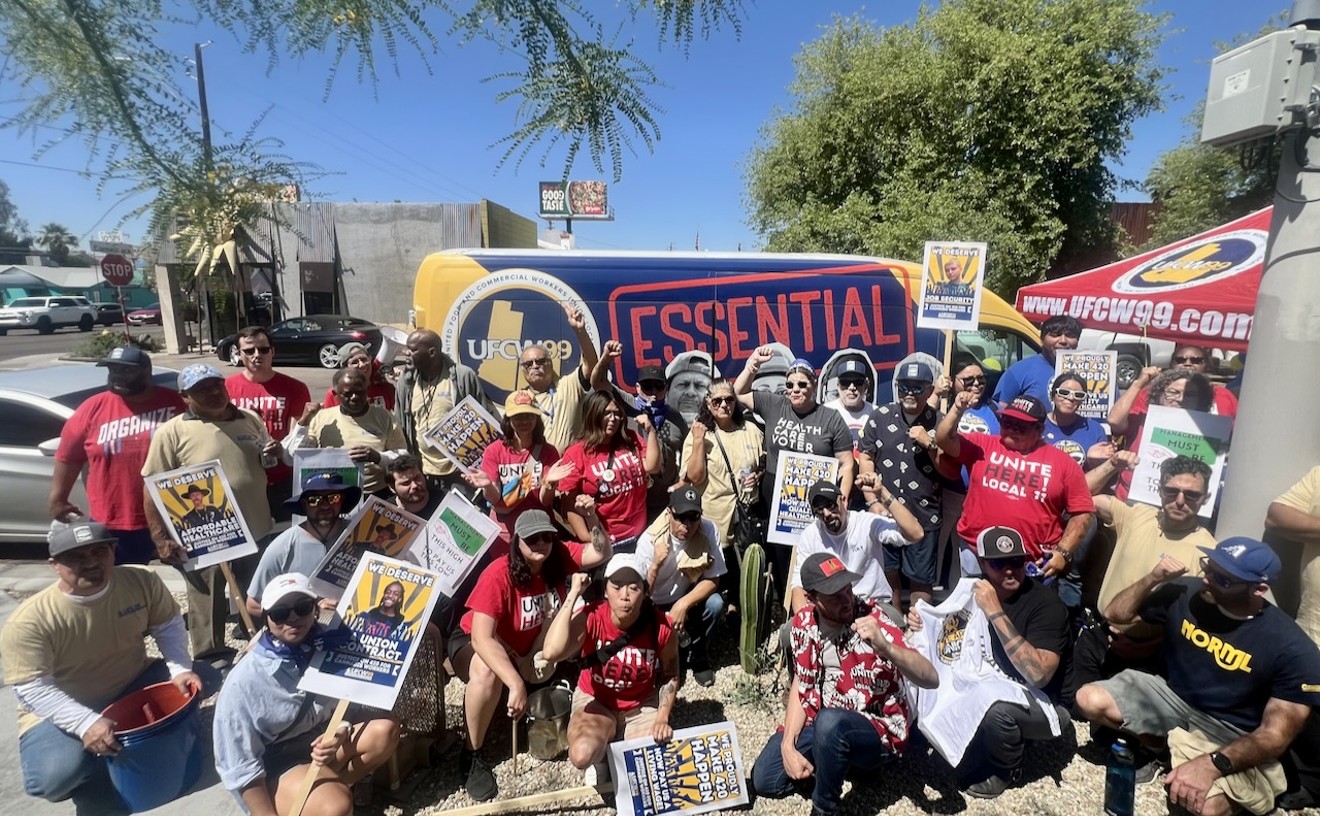In June 2011, U.S. Immigration and Customs Enforcement's then-director John Morton issued a memo outlining the agency's exercise of its "prosecutorial discretion" in civil immigration cases.
Morton emphasized that ICE would use this discretion to ensure the agency's "enforcement priorities." And ICE's number one enforcement priority, as described in a previous Morton memo, is the removal of criminal aliens and aliens who pose "a national security risk or a risk to public safety."
Some local immigration attorneys I know tell me that since the Morton memo, ICE has changed its game and is working with them to release non-criminal aliens.
Yet, ICE remains an institution that relies on deportations to exist in its current state. For ICE, the fact that the Obama administration is closing in on 2 million deportations is a good thing.
Help Justo remain in the U.S. by sending an email to ICE authorities.
One of those deportations may end up being Justo Rojop, a Phoenix high school student with no criminal history, who was brought to this country from Guatemala a few years ago by his father.
Currently, Justo, 18, is fighting a deportation order while imprisoned at the Eloy Correctional Facility, run by the private prison behemoth Corrections Corporation of America. The prison was the site of a protest on Monday where several activists chained themselves together in front of an entrance to the facility.
Justo should be finishing his high school degree at Esperanza Community Collegial Academy, where, according to his teacher and soccer coach Sal Reza, the well-known civil rights activist, he has been a good student and an outstanding athlete.
In fact, Justo helped Esperanza's soccer team beat better-financed teams in its league to become a runner-up for the state championship in 2012, and, then, state champion in 2013.
But last year, while he was still 17, Justo was driving home from his job as a busboy at a Scottsdale restaurant, when the car was pulled over for a traffic violation.
Then a minor, Justo was not charged with anything, according to his attorney Gabriel Sayavedra, but he was taken into custody and turned over to ICE. The agency promised to release Justo to a parent.
Problem is, Justo's father is also undocumented. When he showed up to get his child, he was taken into custody as well. Ultimately, both father and son were released on their own recognizance, Sayavedra says, with the understanding that ICE would send them letters, advising them of their respective court dates.
Sayavedra believes ICE sent Justo a letter, but Justo did not receive it, since he had moved to a new apartment. As a result, Justo did not show for court, and was promptly ordered deported.
At the time Justo was released, ICE advised him to check in with the agency in a year's time. When Justo did this, the agency arrested him.
"We tried to reopen the case," Sayavedra told me. "But immigration was opposed to reopening it, and the judge did not grant the motion to reopen."
Sayavedra is appealing the case to the Board of Immigration Appeals, which is the immigration court of last resort. He expects to hear something within three months or more.
Meanwhile, Justo remains in Eloy, where he plays on the prison soccer team.
"He's trying to kick his sorrows away," Sayavedra says.
But those sorrows keep coming. A few weeks ago, his father was stopped for a traffic violation by Phoenix police and his car was impounded, apparently because he could not produce identification.
When Justo's pop went to retrieve the vehicle, he had to present some form of identification, so he brought his Guatemalan driver's license, which he said was issued by his home country's MVD.
I know from reporting on such incidents that when local cops are confronted with a driver's license or some other form of ID from Mexico or another Latin American country, they often assume the ID is fake, and arrest the person for forgery.
So Justo's dad -- Justo's only means of support -- is in county jail, being held nonbondable under the dictates of Prop 100 on one felony charge of presenting a forged instrument.
As part of its campaign NotOneMoreDeportation.com, the National Day Laborer Organizing Network (NDLON) has been asking people to sign an email asking for ICE to use its prosecutorial discretion in Justo's case and encourage the court to rule in his favor.
Will it help? You never know. Organizations such as Puente and NDLON have had some success advocating on behalf of folks like Justo, in part with email drives and petitions.
Perhaps ICE's institutional intransigence in this case can be overcome, if enough of us show the agency we give a damn about Justo's fate.











